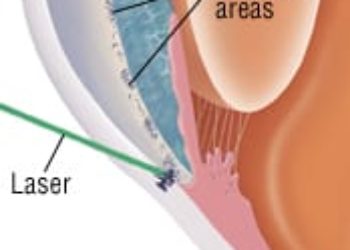Reminder devices may not improve medication adherence: The REMIND trial
1. In this randomized controlled trial, three low-cost reminder devices (pill bottle strip with toggles, digital timer cap, or standard pillbox) did not significantly increase medication adherence to optimal level (>80% medication possession ratio) as compared to the no intervention control group.
2. In subgroup analysis, males had better adherence with pill bottle strips with toggles than females and patients with higher baseline adherence did better with the digital timer cap than those with lower baseline adherence.
Evidence Rating Level: 2 (Good)
Study Rundown: The use of medication-reminder devices have been considered to improve medication adherence in patients with chronic illnesses. However, there is limited and inconsistent data about the effectiveness of these devices. This randomized controlled trial aimed to compare the effect of three low-cost reminder devices on medication adherence in patients with poor adherence.
None of the three low-cost medication reminder devices (pill bottle strip with toggles, digital timer cap, or standard pillbox) improved medication adherence as compared to the control group. Most of the subgroup analysis was non-significant, however males had significantly higher adherence as compared to females when using the pill bottle strip with toggles and those with higher baseline medication adherence did significantly better than those with lower baseline adherence when using the digital timer cap. Strengths of this study included its large size, and randomized block design. However, patients over age 65 years old, a group more likely to have longer medication lists and adherence issues, were not included in this study, and similar reminder devices should be studied in this population.
Click to read the study, published in JAMA Internal Medicine
Relevant Reading: Factors Associated with Medication Refill Adherence in Cardiovascular-related Diseases: A Focus on Health Literacy
In-Depth [randomized controlled trial]: This 4-arm, block randomized controlled trial was conducted using enrollees of CVS Caremark, a pharmacy benefit manager from across the USA, from February 2013 to March 2015. It included participants who were 18-64 years old and were taking one to three oral medications for chronic illnesses (e.g. hypertension, dyslipidemia, heart failure, diabetes, BPH, breast cancer, Parkinson’s disease, seizures or epilepsy). Individuals aged 65 and older, who receive drug benefits from Medicare, were excluded. Patients enrolled into this study had to have suboptimal medication adherence (defined as a medication possession ratio of 30-80%) in the year prior to randomization. Patients were divided into strata according to disease for which they were taking the daily medications (chronic disease vs. antidepressant). Within the strata, randomization occurred in blocks defined by whether all of the patient’s medications were dosed once daily. If a patient had at least one medication that was dosed greater than once daily, they were not eligible for the pill bottle strip with toggles. Those patients were then randomized to 1 of 3 intervention arms. Within each block, randomization occurred in a 2:1 ratio between each device and control arms. The primary outcome of interest was a binary measure of optimal adherence during the 12-month follow-up period defined as medication possession ratio of >80%. Statistical analysis was performed according to intention-to-treat principles using logistic regression.
In total 53 480 participants were included in the study population. In the primary analysis there was no significant difference in the percentage of participants that met optimal adherence of >80% medication possession ratio with any of the three devices: 15.5% of patients in the chronic disease stratum assigned to standard pillbox (OR 1.03; 95% CI 0.95-1.13), 15.1% assigned to the digital timer cap (OR 1.00; 95% CI 0.92-1.09), 16.3% assigned to pill bottle strip with toggles (OR 0.94; 95% CI 0.85-1.04) and 15.1% assigned to the control arm.
Image: CC/Wiki
©2017 2 Minute Medicine, Inc. All rights reserved. No works may be reproduced without expressed written consent from 2 Minute Medicine, Inc. Inquire about licensing here. No article should be construed as medical advice and is not intended as such by the authors or by 2 Minute Medicine, Inc.






